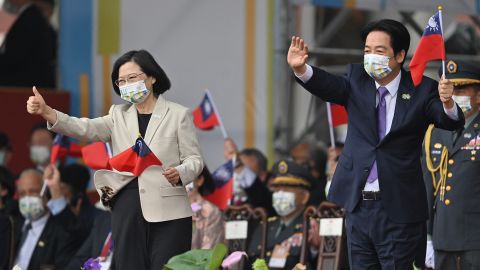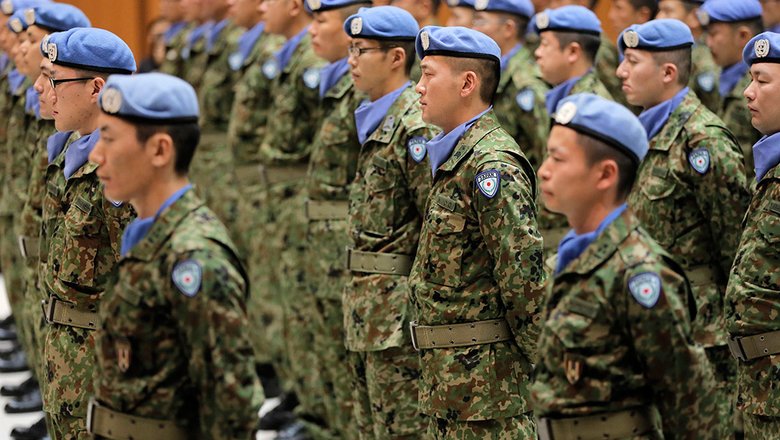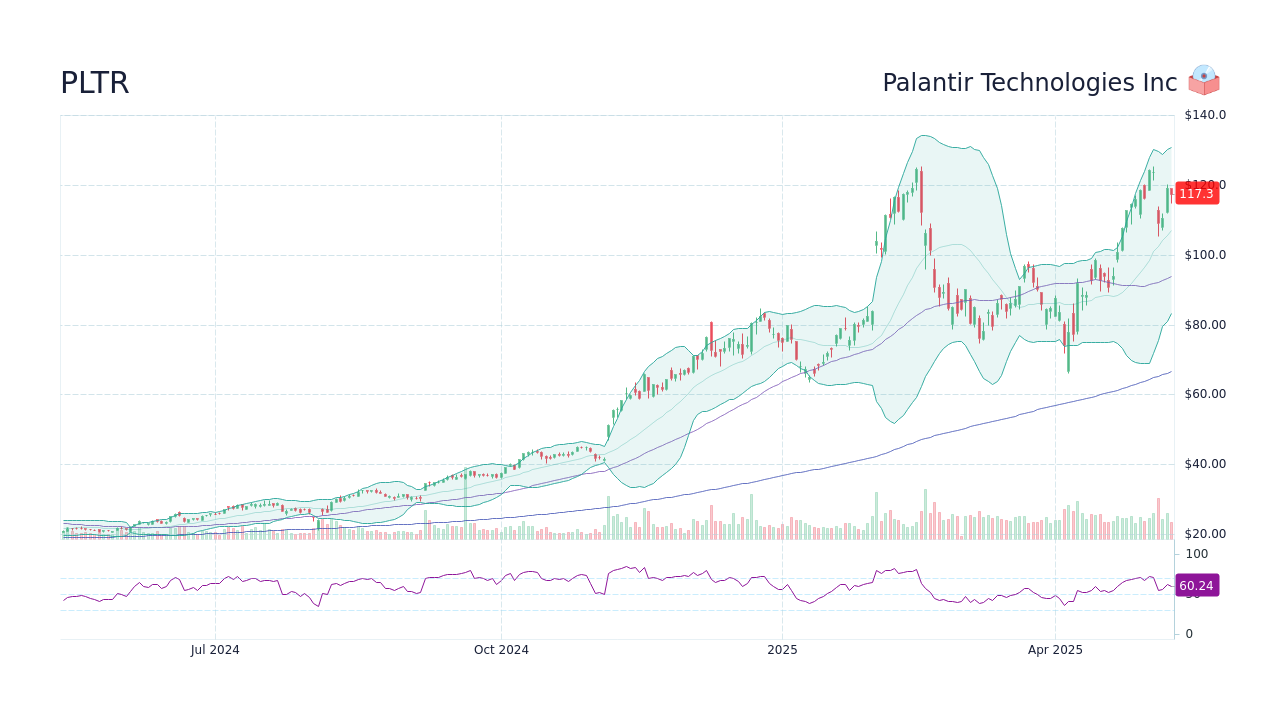VE Day Speech Highlights Growing Totalitarian Threat To Taiwan, Lai Warns

Table of Contents
On VE Day, a day commemorating the end of World War II and the defeat of fascism, Taiwanese Vice President Lai Ching-te delivered a powerful speech that resonated far beyond the historical context. His address served as a stark warning, highlighting the growing totalitarian threat to Taiwan and the urgent need for global vigilance against authoritarian expansion. This article will delve into the key points of Lai's speech, analyzing their implications for Taiwan's future and the broader geopolitical landscape.
Lai's Warning of Escalating Authoritarian Threat
Lai's speech didn't shy away from addressing the elephant in the room: the increasingly assertive actions of the People's Republic of China (PRC) towards Taiwan. He painted a picture of a rising totalitarian threat, drawing parallels between historical dictatorships and the current challenges faced by the island nation.
The Specific Threat Posed by China
The Vice President's warning was unambiguous. He pointed to a range of concerning actions by China:
-
Increased Military Activities: China's military exercises near Taiwan have become increasingly frequent and aggressive, a blatant demonstration of its willingness to use force to achieve its political goals. These actions represent a significant escalation in cross-strait tensions and pose a direct threat to Taiwan's security.
-
Assertive Actions in the South China Sea: China's claims and actions in the South China Sea, impacting regional stability and freedom of navigation, further demonstrate its disregard for international norms and its willingness to employ coercive tactics. This aggressive posture adds to the overall sense of insecurity felt in Taiwan.
-
Influence Operations and Disinformation: China's sophisticated influence operations and disinformation campaigns aim to undermine Taiwan's democratic institutions and sow discord within its society. These covert actions are a crucial element of its broader strategy to exert pressure and destabilize the island.
-
Heightened Cross-Strait Tensions and Potential for Conflict: The cumulative effect of these actions has significantly increased cross-strait tensions, raising the specter of armed conflict and necessitating a robust response from Taiwan and its allies. Experts warn of a potential for miscalculation or escalation that could have dire consequences.
-
Expert Opinion: Analysts and geopolitical experts widely agree that the threat posed by China to Taiwan's sovereignty is real and growing, making Lai's warning credible and urgent.
Parallels Drawn Between Historical Totalitarianism and Present-Day Threats
Lai's speech skillfully drew parallels between the totalitarian regimes of the past, such as Nazi Germany, and the tactics employed by contemporary authoritarian powers. He emphasized:
-
Methods of Suppression: He highlighted the similarities in the methods used to suppress dissent, control information, and consolidate power, drawing a clear line between historical atrocities and the current dangers facing Taiwan.
-
Importance of Remembering History: His message underscored the importance of learning from history to prevent the recurrence of such horrors. By remembering the past, Taiwan and the international community can better identify and counter the threats of contemporary totalitarianism.
Lai's Call for International Support and Collaboration
Recognizing the gravity of the situation, Lai's speech also focused on the need for international support and collaboration in countering the growing totalitarian threat.
Emphasis on Strengthening Taiwan's Democratic Alliances
Lai underscored the crucial role of strong alliances in protecting Taiwan's democracy:
-
Partnerships with Democratic Nations: He highlighted the importance of deepening existing partnerships and forging new alliances with like-minded democratic nations who share a commitment to defending freedom and resisting authoritarianism.
-
International Support for Taiwan's Defense: This includes providing Taiwan with the necessary defensive capabilities to deter aggression and protect its sovereignty. This is not only about military aid but also about diplomatic support and economic cooperation.
-
Specific Countries and Alliances: While the speech didn't name specific countries, the message implicitly called for stronger ties with countries like the US, Japan, and members of the EU, nations who have expressed concern about China's actions.
-
Taiwan's Role in the International Community: Lai reiterated Taiwan’s commitment to contributing positively to the international community, stressing that the island’s democratic values and economic strength represent a vital asset in a world increasingly challenged by authoritarianism.
The Importance of Global Vigilance Against Authoritarianism
The speech transcended the specific case of Taiwan, emphasizing the broader global implications of unchecked authoritarian expansion:
-
Global Implications of Authoritarian Expansion: Lai warned that the threat posed by authoritarian regimes is not confined to Taiwan; it represents a challenge to global democracy and stability.
-
Interconnectedness of Democratic Nations: He stressed the interconnectedness of democratic nations and the importance of collective action to counter the global rise of authoritarianism.
-
Collective Action to Counter Authoritarian Threats: This includes diplomatic pressure, economic sanctions, and support for pro-democracy movements around the world.
-
Global Efforts to Support Democracy and Human Rights: Lai implicitly called for strengthening existing international mechanisms and creating new ones to effectively promote democracy and human rights globally.
Domestic Implications and Responses to the Growing Threat
Lai's speech also addressed the domestic implications of the growing totalitarian threat and outlined strategies for responding effectively.
Strengthening Taiwan's National Defense Capabilities
Recognizing the military dimension of the threat, Lai stressed the need for Taiwan to strengthen its national defense capabilities:
-
Military Preparedness: This includes enhancing military training, modernizing its armed forces, and ensuring the readiness of its defense systems.
-
Investment in Defense Technology and Personnel: Increased investment in cutting-edge defense technologies and attracting and retaining highly skilled military personnel are critical to Taiwan’s defense posture.
-
Asymmetric Warfare Strategies: Given the disparity in military strength, exploring and developing effective asymmetric warfare strategies is crucial for deterring aggression.
-
Civilian Defense Preparedness Initiatives: Lai likely touched upon the importance of enhancing civilian preparedness through drills, education, and communication strategies to ensure a unified response during a crisis.
Consolidating Domestic Unity and Resilience
Beyond military preparedness, Lai highlighted the importance of domestic unity and resilience:
-
Social Cohesion and National Identity: Maintaining strong social cohesion and a shared sense of national identity are essential for weathering the challenges ahead.
-
Public Opinion Regarding the Threat from China: Understanding public sentiment and addressing concerns about the threat from China are crucial for formulating effective strategies.
-
Measures to Enhance National Unity and Resilience: Initiatives aimed at strengthening societal unity, promoting civic engagement, and fostering resilience against disinformation campaigns are crucial.
-
Relevant Policy Initiatives: The speech likely alluded to specific policy initiatives that the Taiwanese government has implemented or plans to implement to address the growing threat.
Conclusion
Vice President Lai Ching-te's VE Day speech served as a potent reminder of the enduring threat of authoritarianism and its specific manifestation in the case of Taiwan. His call for international collaboration and the strengthening of Taiwan's defenses underscores the urgency of the situation. The speech powerfully demonstrated the interconnectedness of global security and the imperative of collective action to protect democracy worldwide. The totalitarian threat to Taiwan is not an isolated issue; it is a challenge to the global democratic order, demanding a unified and resolute response.
Call to Action: Understanding the growing totalitarian threat to Taiwan is crucial for safeguarding democracy globally. Stay informed about developments in cross-strait relations and support efforts to bolster Taiwan's defense and its place in the international community. Learn more about the ongoing totalitarian threat to Taiwan and how you can contribute to its defense.

Featured Posts
-
 Becoming A Better Ally A Guide For International Transgender Day Of Visibility
May 10, 2025
Becoming A Better Ally A Guide For International Transgender Day Of Visibility
May 10, 2025 -
 Podpisanie Oboronnogo Soglasheniya Makronom I Tuskom Razbor Novostey Ot 9 Maya
May 10, 2025
Podpisanie Oboronnogo Soglasheniya Makronom I Tuskom Razbor Novostey Ot 9 Maya
May 10, 2025 -
 Bof As Reassurance Why Stretched Stock Market Valuations Shouldnt Worry Investors
May 10, 2025
Bof As Reassurance Why Stretched Stock Market Valuations Shouldnt Worry Investors
May 10, 2025 -
 Nottingham Police Under Scrutiny Following Attack Investigation
May 10, 2025
Nottingham Police Under Scrutiny Following Attack Investigation
May 10, 2025 -
 Palantir Technologies Stock Investment Potential And Future Outlook
May 10, 2025
Palantir Technologies Stock Investment Potential And Future Outlook
May 10, 2025
